
TO MAKE AND EAT TIME:
Pork Rillettes in a Pandemic
by Greg Emilio
I.
And one day, just like that, you will make time.
You will make time to dust off the cookbooks you’ve never used. You will pick up the fat French tome and crack it open and it will smell like your grandparents' kitchen. The papery redolence of oil, roasted chicken. The splattered windows of grease stains as holy as stained glass. Time to finger the recipes their pencils annotated. Time to make, and make do, to use what you have: time trapped in a half-forgotten bottle of Muscadet.
You will make time, because suddenly, you, and the rest of the world, will have time.
Lured by economy and the blind contingency of time and place, you will come to a recipe for rillettes. Pâté-tender pork preserved under a layer of lard. Peasant’s butter back in the day, the fat cap keeping the meat for months. (Time to seek out foods that will stand the test of time.)
After a perilous excursion to the grocery store and a trip to the butcher (by comparison heaven on earth), you will be ready to set the cure on your inch by inch chunks of pork shoulder: salt, garlic, ginger, coriander, black pepper, and white wine. Plus the unexpected warmth of cinnamon, nutmeg, and clove.
And this is how you will set the cure. And this is how the beginning of time is made. And now, you must wait three days.

















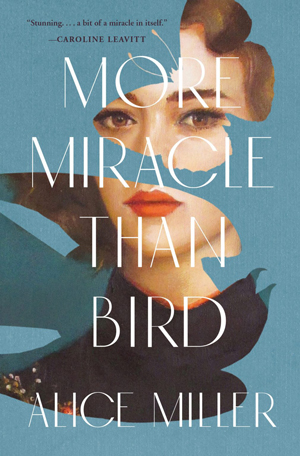 I approached More Miracle than Bird, Alice Miller’s debut novel about W.B. Yeats and his erstwhile muse, Georgie Hyde-White, as a poet interested in learning about Yeats and the woman who influenced his work. Although we get insights about the poet and his work, the novel is more about the journey of his muse, a naïve but determined rebel attempting to thwart the traditional roles that have been carved out for her. We see her youthful struggles and missteps, but by the novel’s close, we see a woman who has learned that holding onto the philandering Yeats means reshaping herself into someone who can contribute to his work.
I approached More Miracle than Bird, Alice Miller’s debut novel about W.B. Yeats and his erstwhile muse, Georgie Hyde-White, as a poet interested in learning about Yeats and the woman who influenced his work. Although we get insights about the poet and his work, the novel is more about the journey of his muse, a naïve but determined rebel attempting to thwart the traditional roles that have been carved out for her. We see her youthful struggles and missteps, but by the novel’s close, we see a woman who has learned that holding onto the philandering Yeats means reshaping herself into someone who can contribute to his work.
















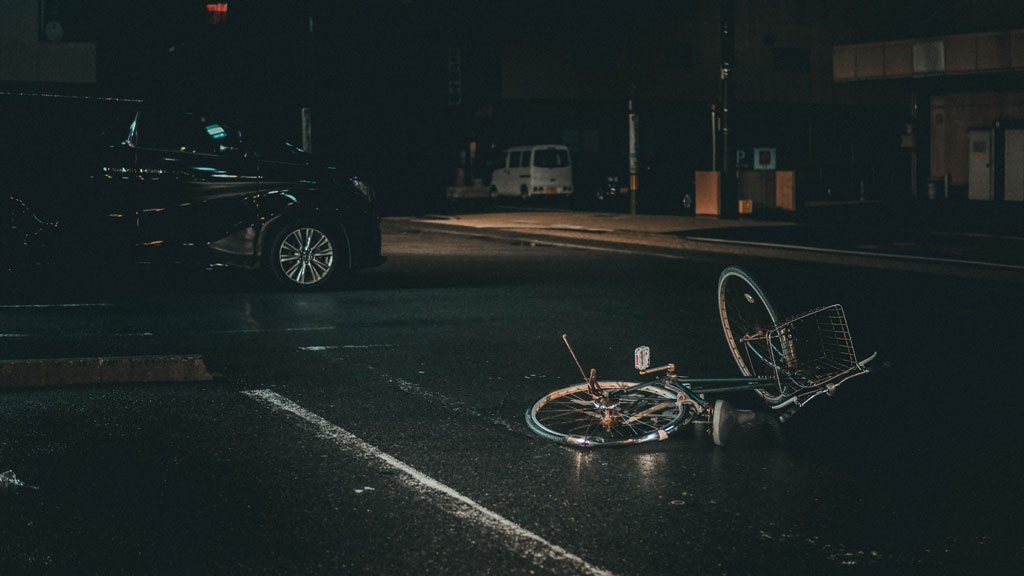













 Let’s be honest—the chances of walking into a bookstore and finding a literary lesbian romance are low. You’re more likely to find an entire cookbook consisting of sourdough recipes. If you want the book to feature characters of color, your odds sink even lower. Emily Hashimoto’s debut novel promises to fill this lacuna. A World Between (Feminist Press, forthcoming) follows the relationship between two women of color, Leena and Eleanor, through college and adulthood. The novel alternates between Leena’s and Eleanor’s perspectives, revealing the yearnings and anxieties of each as they grow apart and together.
Let’s be honest—the chances of walking into a bookstore and finding a literary lesbian romance are low. You’re more likely to find an entire cookbook consisting of sourdough recipes. If you want the book to feature characters of color, your odds sink even lower. Emily Hashimoto’s debut novel promises to fill this lacuna. A World Between (Feminist Press, forthcoming) follows the relationship between two women of color, Leena and Eleanor, through college and adulthood. The novel alternates between Leena’s and Eleanor’s perspectives, revealing the yearnings and anxieties of each as they grow apart and together.

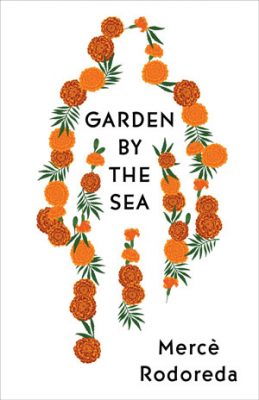 When I began my part-time job at a botanical garden in the fall of 2017, I had next to zero gardening experience, and I knew little about the different flowers and trees that grow in the Piedmont region of North Carolina. I showed up that first day completely unprepared, without so much as a pair of gloves. But I was lucky enough to be mentored by David, a man in his early thirties from Maine, who’d been gardening for several years. David explained to me the paradoxical nature of caring for gardens: gardens need constant attention, but they bear their beautiful fruits ever so slowly. At the heart of David’s message was that gardeners are transitory, but gardens remain. Our decades are their hours.
When I began my part-time job at a botanical garden in the fall of 2017, I had next to zero gardening experience, and I knew little about the different flowers and trees that grow in the Piedmont region of North Carolina. I showed up that first day completely unprepared, without so much as a pair of gloves. But I was lucky enough to be mentored by David, a man in his early thirties from Maine, who’d been gardening for several years. David explained to me the paradoxical nature of caring for gardens: gardens need constant attention, but they bear their beautiful fruits ever so slowly. At the heart of David’s message was that gardeners are transitory, but gardens remain. Our decades are their hours.
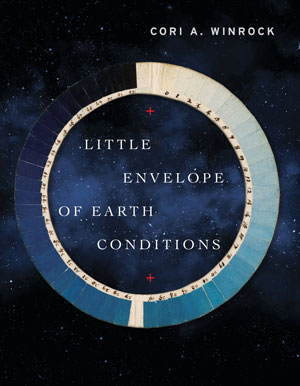 I read Little Envelope of Earth Conditions in late June, when COVID-19 cases were skyrocketing in the world and the nation—and at home. The May 24th New York Times front page, which listed the names of the 100,000 American coronavirus victims—a very public display of mourning and grief—was at the forefront of my memory, as were the more personal ways that I was mourning the loss of traditions, previous ways of life, time spent with grandparents and my fellow high school students alike.
I read Little Envelope of Earth Conditions in late June, when COVID-19 cases were skyrocketing in the world and the nation—and at home. The May 24th New York Times front page, which listed the names of the 100,000 American coronavirus victims—a very public display of mourning and grief—was at the forefront of my memory, as were the more personal ways that I was mourning the loss of traditions, previous ways of life, time spent with grandparents and my fellow high school students alike.
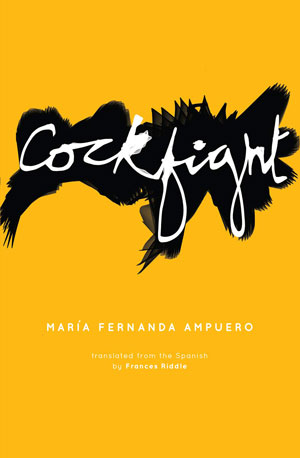 In her debut novel, Ecuadorian writer and journalist María Fernanda Ampuero takes an unflinching and intimate look into the turbulent homes and lives of Latin American women. By placing her powerful, moving stories in settings like violent domestic households or lower income neighborhoods, the characters in Ampuero’s Cockfight combat their situations with acts of bravery, loss, and love. As the characters seem to suffocate in their environments, there are acts of bravery, loss, and love. The idea of a happy family is a myth and men are depicted as lecherous, terrifying creatures of the night. The narrators often are maids, young girls, and women wrenched into horrifying situations such as forced incest, rape, and human trafficking.
In her debut novel, Ecuadorian writer and journalist María Fernanda Ampuero takes an unflinching and intimate look into the turbulent homes and lives of Latin American women. By placing her powerful, moving stories in settings like violent domestic households or lower income neighborhoods, the characters in Ampuero’s Cockfight combat their situations with acts of bravery, loss, and love. As the characters seem to suffocate in their environments, there are acts of bravery, loss, and love. The idea of a happy family is a myth and men are depicted as lecherous, terrifying creatures of the night. The narrators often are maids, young girls, and women wrenched into horrifying situations such as forced incest, rape, and human trafficking.
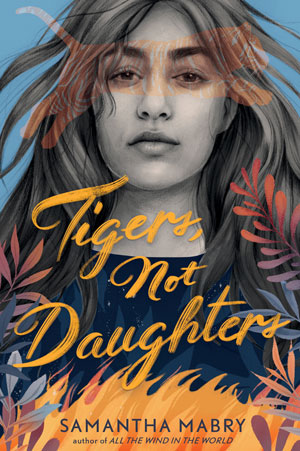 Samantha Mabry’s Tigers, Not Daughters is a modern-day ghost story that follows the Torres sisters—Jessica, Iridian, and Rosa—one year after the untimely death of their oldest sister, Ana. Wracked with grief, the Torres sisters ache for Ana; but their profound sadness is met with unexpected events that eventually make their sister’s presence known: raps on doors and windows, writings on the walls, sensory overload, recurring storms, flickering lights, dying animals, and one escaped spotted hyena lurking in the darkness of their neighborhood in Southtown. Ana reappears in a way the girls can’t begin to imagine and returns with a vengeance they don’t understand. Mabry tells a riveting tale of three sisters who discover the power of sisterhood and what it means to stay together despite insurmountable, unnatural odds.
Samantha Mabry’s Tigers, Not Daughters is a modern-day ghost story that follows the Torres sisters—Jessica, Iridian, and Rosa—one year after the untimely death of their oldest sister, Ana. Wracked with grief, the Torres sisters ache for Ana; but their profound sadness is met with unexpected events that eventually make their sister’s presence known: raps on doors and windows, writings on the walls, sensory overload, recurring storms, flickering lights, dying animals, and one escaped spotted hyena lurking in the darkness of their neighborhood in Southtown. Ana reappears in a way the girls can’t begin to imagine and returns with a vengeance they don’t understand. Mabry tells a riveting tale of three sisters who discover the power of sisterhood and what it means to stay together despite insurmountable, unnatural odds.
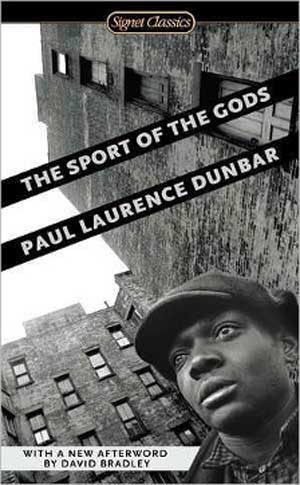 For the best experience, I recommend reading The Sport of the Gods outside on a cloudy day, rain threatening. As you fall in step with Paul Laurence Dunbar’s rhythmic prose, it’ll be easy to forget that you’re at nature’s mercy. Let the clouds decide whether or not you get to read uninterrupted. Subject to this force, you may more easily understand what the Hamilton family endures in this novel. As deceits and misfortunes pile on top of each other, the Hamiltons decide that nature can’t help but rain down upon them. Their breakdown is more than plain bad luck can explain, so they know that they are fighting, “against some Will infinitely stronger than their own.”
For the best experience, I recommend reading The Sport of the Gods outside on a cloudy day, rain threatening. As you fall in step with Paul Laurence Dunbar’s rhythmic prose, it’ll be easy to forget that you’re at nature’s mercy. Let the clouds decide whether or not you get to read uninterrupted. Subject to this force, you may more easily understand what the Hamilton family endures in this novel. As deceits and misfortunes pile on top of each other, the Hamiltons decide that nature can’t help but rain down upon them. Their breakdown is more than plain bad luck can explain, so they know that they are fighting, “against some Will infinitely stronger than their own.”

